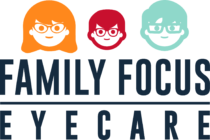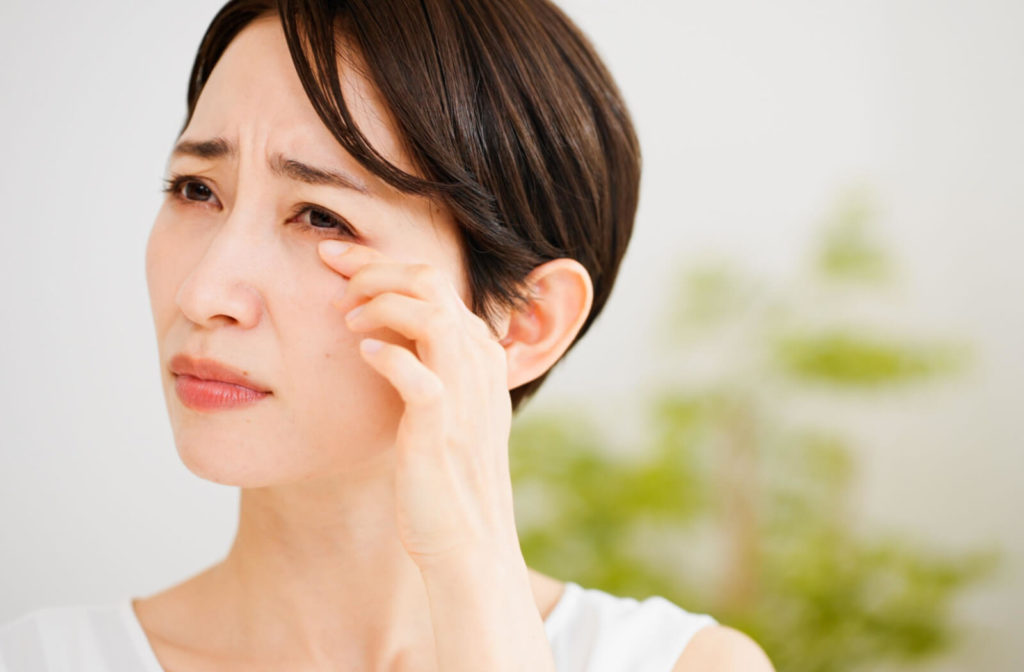If you’ve experienced burning, gritty, or scratchy eyes, you may have dry eye disease. This is a common—and treatable—eye condition that can lead to blurry vision, discomfort, and redness in the eyes. But can it cause blindness?
In extreme cases, dry eye disease can lead to long-term vision problems if left untreated. This condition is caused by a problem with your tears, which protect the eye. But dry eye disease interferes with your tear production, leaving your eyes unprotected and prone to corneal damage. And corneal damage can lead to partial or total blindness.
What Is Dry Eye Disease?
Dry eye disease is a common eye condition caused by a problem with tear production. Your tear film naturally lubricates, moisturizes, and hydrates the eye while flushing out dust and contaminants. Made up of 3 layers—oil, water, and mucus layers—the tear film helps shield and protect your eyes.
However, a disruption in the balance of the tear film can cause the eye to:
- Not produce enough tears
- Produce tears poor quality tears
When either of these issues occurs, the tears are either inefficient or evaporate too quickly, leaving the eye exposed to the outside environment, leading to:
- A gritty, burning, sandy, or dry sensation on the eye’s surface
- Redness
- Irritation
- Discomfort
- Blurry vision
If left untreated, dry eye disease can eventually damage the cornea as your tear film no longer protects it.
What Causes Dry Eye Disease?
This condition can be caused by several issues—some environmental, some medical. One of the most common causes of dry eye disease is meibomian gland dysfunction (MGD). The meibomian glands produce the oil layer for your tears that prevents them from evaporating too quickly.
When these glands become blocked, obstructed, or restricted in any way, it can decrease your oil production. Fortunately, MGD can be treated with IPL (intense pulsed light) therapy. IPL warms the meibomian gland and stimulates the area to help increase oil production and prevent your tears from evaporating.
MGD isn’t the only cause of dry eye disease, however. Dry eyes can also be caused by:
- A dusty, dry, or smoky environment
- Medical conditions like Sjogren’s syndrome or rheumatoid arthritis
- A recent eye surgery
- Injury or trauma to the eye
- Age-related changes occurring in the eye
- Vitamin A deficiency
It’s important to visit your optometrist if you notice feelings of burning or irritation in your eye so they can suggest an appropriate form of dry eye therapy.

Can Dry Eye Disease Lead to Blindness?
Since dry eye disease leaves the cornea unprotected, it can cause many vision problems. Dry eye disease often causes temporary blurry vision or difficulty seeing at night. But if your case of dry eye disease is severe, it can lead to damage to the cornea itself, such as a corneal abrasion.
Scratches on the eye are more common than you think. While mild or shallow scratches tend to heal quickly, sometimes a scar will form, creating scar tissue on the eye’s surface, which can cause long-term partial or total blindness.
Because of these risks, seeking treatment for your dry eyes is essential.
How Is Dry Eye Disease Treated?
Fortunately, dry eye disease is treatable. Depending on your unique eye situation, the recommended treatment may vary.
IPL is a revolutionary treatment for MGD. This treatment uses intense pulsed light on your eyelids and meibomian glands to stimulate oil production and help prevent tears from evaporating too quickly. While IPL works great for MGD, it may not single-handedly fix your situation. If this becomes the case, your optometrist may recommend:
- Warm compresses
- Over-the-counter or prescription eye drops or artificial tears
- Changing your environment to avoid straining your eyes
These approaches can help promote normal tear production and reduce your feelings of dry eyes.
Dry Eye Therapy
At Family Focus Eyecare, we know how important it is for your eyes to feel comfortable. Your vision is important to us, and we’re here to help you find relief from your dry eyes. Book an appointment with us today to speak with a caring, experienced optometrist!
Think you might have symptoms of Dry Eye? Take a Free Dry Eye Assessment here.



